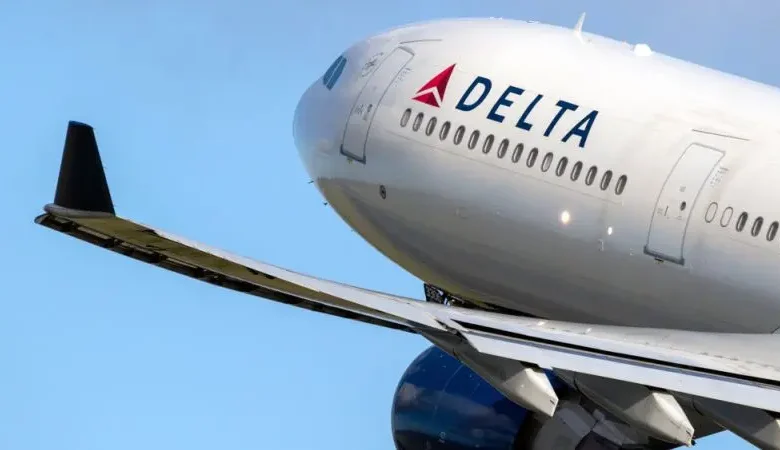Delta Air Lines flights continues to feel impact of CrowdStrike outage

Three days after a mass outage of systems using Window devices, most businesses have returned to normal, including airlines — with the exception of Delta Air Lines.
U.S. cybersecurity firm CrowdStrike said a “significant number” of 8.5 million Windows devices — 1% of the global total — that crashed due to a defective update have been restored.
The outage resulted in thousands of canceled flights since Friday.
On Monday, FlightAware reported 2,016 cancellations in and out of the United States with 9,382 delays by the evening.
That compares with 5,171 cancellations and 12,896 delays Friday; 2,881 cancellations and 9,149 delays Saturday; and 2,963 cancellations and 10,593 delays Sunday.
The bulks of the problems affected passengers booked on Delta flights. Upward of half of Delta’s IT systems worldwide are Windows based with IT teams manually repairing and rebooting each of the affected systems, the airline said in an update Monday.
In a statement, Delta said the issue resulted in more than 3,500 flights canceled through Saturday, with 1,385 flights also canceled Sunday and 929 through Monday night.
The cancellations represented 32% of flights Friday and 24% Monday. The carrier said the issue occurred “on the busiest travel weekend of the summer” with booked loads exceeding 90%.
Delta’s main hub, Atlanta Hartfield-Jackson International Airport, has been heavily affected. Thirteen percent of the airlines’ flights departures from the airport were canceled Monday and 19% of the arrivals.
As of May, Atlanta Hartsfield-Jackson International Airport was the busiest airport in the United States with 5.55 million seats.
Hundreds of passengers were still stuck at the airport, WSB-TV reported Monday.
Some families said that they have been sleeping on the ground with their young kids for days. Local hotels and rental cars were all booked.
“I don’t want to throw Delta under the bus, but they really didn’t tell us anything,” said Chasity Gloyd, who was trying to get back to Baltimore after a girls’ trip to Turks and Caicos.
“People were very upset and yelling. We had all the pilots, but were missing one flight attendant. So they wouldn’t fly the flight.”
Delta CEO Ed Bastian apologized for the disruptions and attributed the problem to the computer program affecting its “crew tracking” software.
“We’ve got everyone around the company working around the clock to get this operation where it needs to be,” Delta CEO Ed Bastian said in a video message to employees on Monday. “Keep taking great care of our customers and each other in the coming days.”
“One of our crew tracking-related tools was affected and unable to effectively process the unprecedented number of changes triggered by the system shutdown,” he wrote in a note to customers Sunday night.
“Our teams have been working around the clock to recover and restore full functionality.”
On Sunday, Transportation Secretary Pete Buttigieg spoke with Bastian about the problems and taking steps to compensate passengers, according to a statement from the Department of Transportation.
“I have made clear to Delta that we expect the airline to provide prompt refunds to consumers who choose not to be rebooked, and free rebooking and timely reimbursements for food and overnight hotel stays to consumers affected by the delays and cancellations, as well as adequate customer service assistance to all of their passengers,” Buttigieg wrote in a DOT statement posted on X.
“No one should be stranded at an airport overnight or stuck on hold for hours waiting to talk to a customer service agent.”
The airline would “continue to offer meal vouchers, hotel accommodations and transportation where available,” Bastian said. “And as a gesture of apology, we’re also providing impacted customers with Delta SkyMiles and travel vouchers.”
The airline said it “would not reimburse prepaid expenses, including but not limited to hotel reservations at the customer’s destination, vacation experiences, lost wages, concerts or other tickets.”
Because Friday’s IT failures were defined as “controllable” disruptions on the part of the airline, Delta is required to honor customer commitments.
Those include rebooking passengers whose flights canceled or significantly delayed on other services at no additional cost, as well as providing hotels and meals and ground transportation vouchers for eligible travelers.
Delta’s wholly owned regional subsidiary, Endeavor Air, also was affected, with 102 flights canceled Monday (14% of total) after 293 Friday (42%), 221 Saturday (44%) and 151 Sunday (23.5%). Endeavor is headquartered at the Minneapolis-St. Paul International Airport in Minneapolis.
On Monday, only 73 American Airlines flights and 31 United Airlines flights were canceled. These include those that are weather related and equipment problems.
United said that most of its systems were recovered Saturday but that their customers may continue to experience flight delays and cancelations.
Federal Trade Commission Chair Linda Khan, who has targeted monopolies during her tenure, warned about the concentration of services into a single company in the wake of the outages.
“All too often these days, a single glitch results in a system-wide outage, affecting industries from healthcare and airlines to banks and autodealers. Millions of people and businesses pay the price,” she said.
CrowdStrike was quick to state that the mass outage that affected air transportation, financial systems and government entities worldwide, including 911 services, was caused by a defective content update for its Falcon driver software.
“We understand the profound impact this has had on everyone. We know our customers, partners and their IT teams are working tirelessly and we’re profoundly grateful. We apologize for the disruption this has created,” CrowdStrike said in a statement Sunday.
“Our focus is clear: to restore every system as soon as possible.”
According to CrowdStrike, in conjunction with its customers, it has been testing a new technique it says will hasten the restoration of affected systems and it was working to operationalize “an opt-in to this technique.”
“We’re making progress by the minute,” it said.
Though stating on X that a “significant number” of the affected Windows devices were “back online and operational,” it did not clarify how many were still offline.
CrowdStrike stock shares slipped as much as 13% in trading on Monday morning. Guggenheim Securities downgraded its rating on CrowdStrike shares to neutral from buy Sunday.
Analysts led by John DiFucci said the stock was at “the highest multiple of recurring revenue across our entire software coverage.”
“We still have the utmost respect for the leadership team at CrowdStrike and believe that the company will eventually become even stronger as a result of this incident, and if investors have a multi-year horizon, they can ride it out,” they wrote. “However, we find it difficult to tell investors that they need to buy CRWD right now.”










